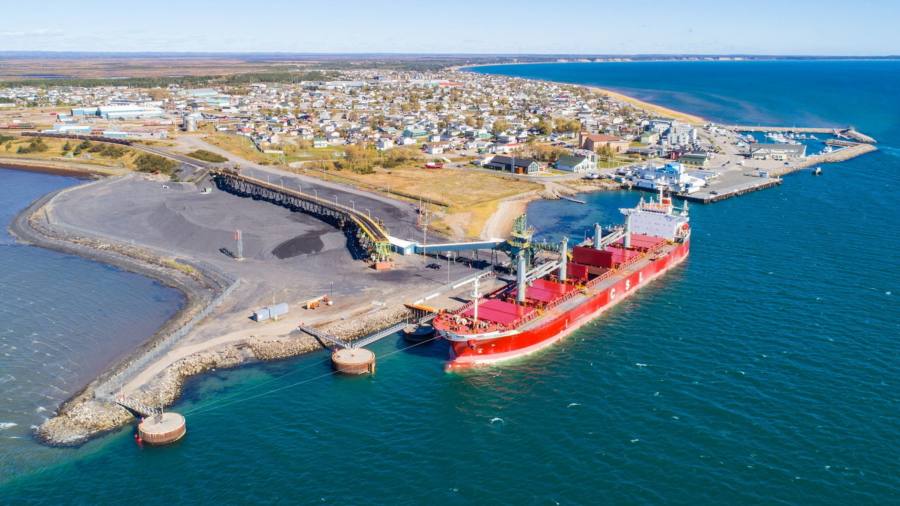The boss of Rio Tinto has warned of the “excesses of globalisation” in critical mineral supply chains as the Anglo-Australian miner and Canadian government plan a C$737mn ($537mn) investment to loosen China’s stranglehold over metals vital to aerospace and defence.
Rio announced on Tuesday that it will modernise the Sorel-Tracy site in Quebec to bolster the supply of minerals controlled by China while reducing emissions at the site by introducing a new smelter technology.
The mining group will start producing titanium metal and quadruple scandium oxide output to 12 tonnes annually; the materials are essential to aerospace, medical products and fuel cells. China produces three-quarters of finished titanium products and 61 per cent of scandium globally, according to Project Blue, a consultancy.
The investments over the next eight years, backed by up to C$222mn of government funds, will transform the 70-year-old facility built in the aftermath of the second world war from its focus on steel, metal powders and titanium dioxide towards supplying materials crucial for national security and the energy transition.
Rio chief executive Jakob Stausholm said the push by the west to reduce its dependence on China for materials processing and Canada’s abundant hydropower resources had encouraged it to invest in new technology to smelt ilmenite — an ore used in the production of titanium. It is planned that these techniques could cut emissions by up to 70 per cent and diversify output at the site.
“It’s the second chapter in [Sorel-Tracy’s] history that we are writing today,” he said. “After years where you have had excesses of globalisation of various materials, in order to address climate change you really, really need much more of the critical minerals that you can produce here.”
Through the investment, Rio will strengthen North America’s first production capacity for titanium metal, a lightweight but strong material important to aerospace and defence groups such as Boeing and Lockheed Martin.
Despite Stausholm’s warning on supply chain concentration, Rio depends heavily on China to buy its iron ore, aluminium and copper, generating 57 per cent of its $68bn in revenues from the country in 2021.
This investment is only the latest in a string in Canada’s mining and battery sector. Cathode producers such as Germany’s BASF, Belgium’s Umicore and Korea’s Posco have signalled in recent months their intention to invest billions of dollars in building plants there.
Over the summer, German and South Korean politicians had visited Canada to court the government and mining industry to secure supplies of minerals such as nickel and cobalt used in electric cars for the likes of Volkswagen, Mercedes-Benz and battery maker LG Energy Solution.
The charm offensive comes after landmark US climate legislation that provides tax credits for electric vehicle buyers if their battery uses raw materials extracted or processed from the US, from trade partner countries or through recycling. That has accelerated the drive for manufacturing groups to relocate their supply chains regionally and reduce dependence on China.
“People understand it doesn’t make sense to mine in Africa, to refine in Asia and produce a battery with coal,” said François-Philippe Champagne, Canada’s minister of innovation, science and industry. “What you’re seeing is a revival of manufacturing in North America.”


